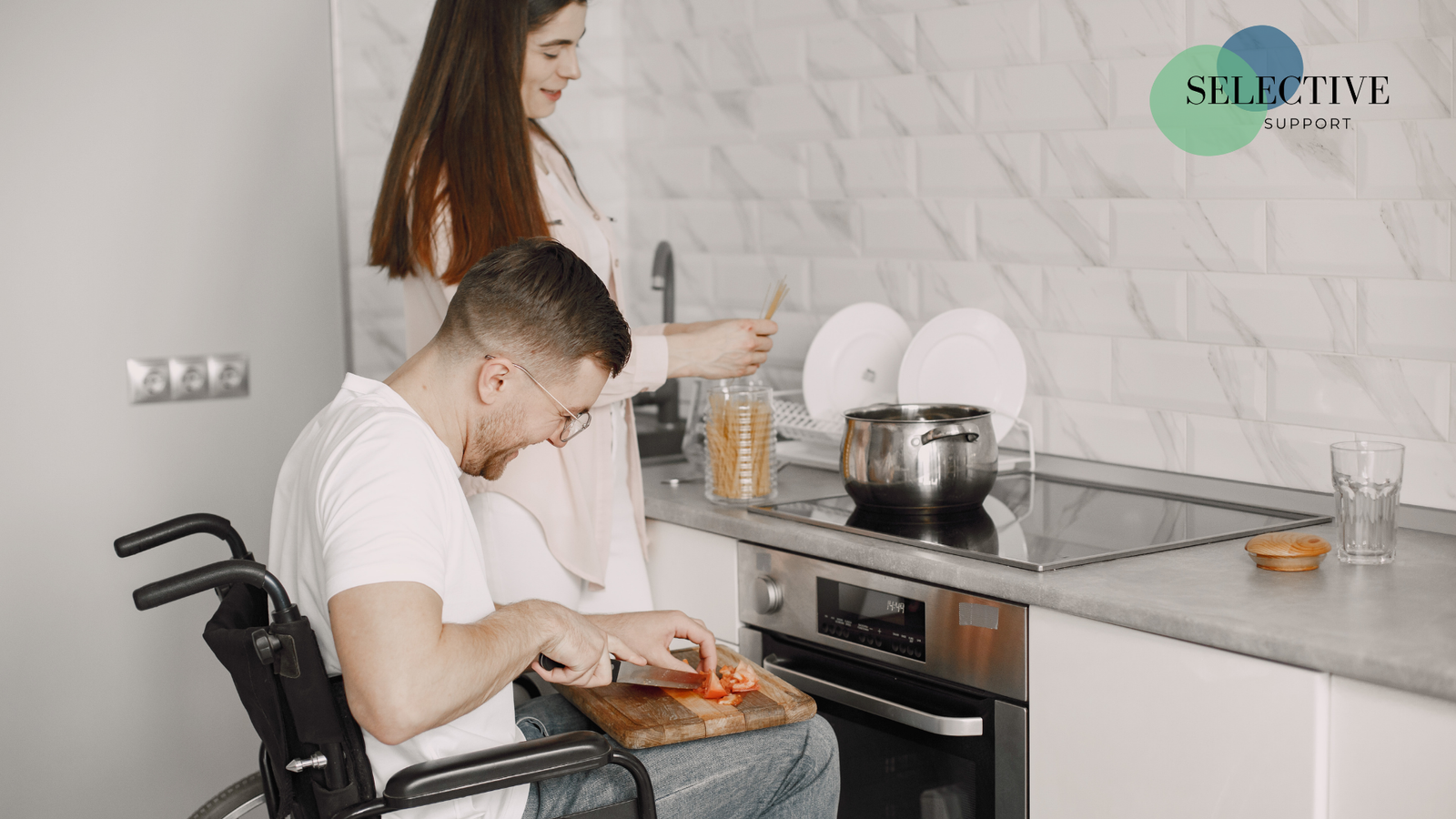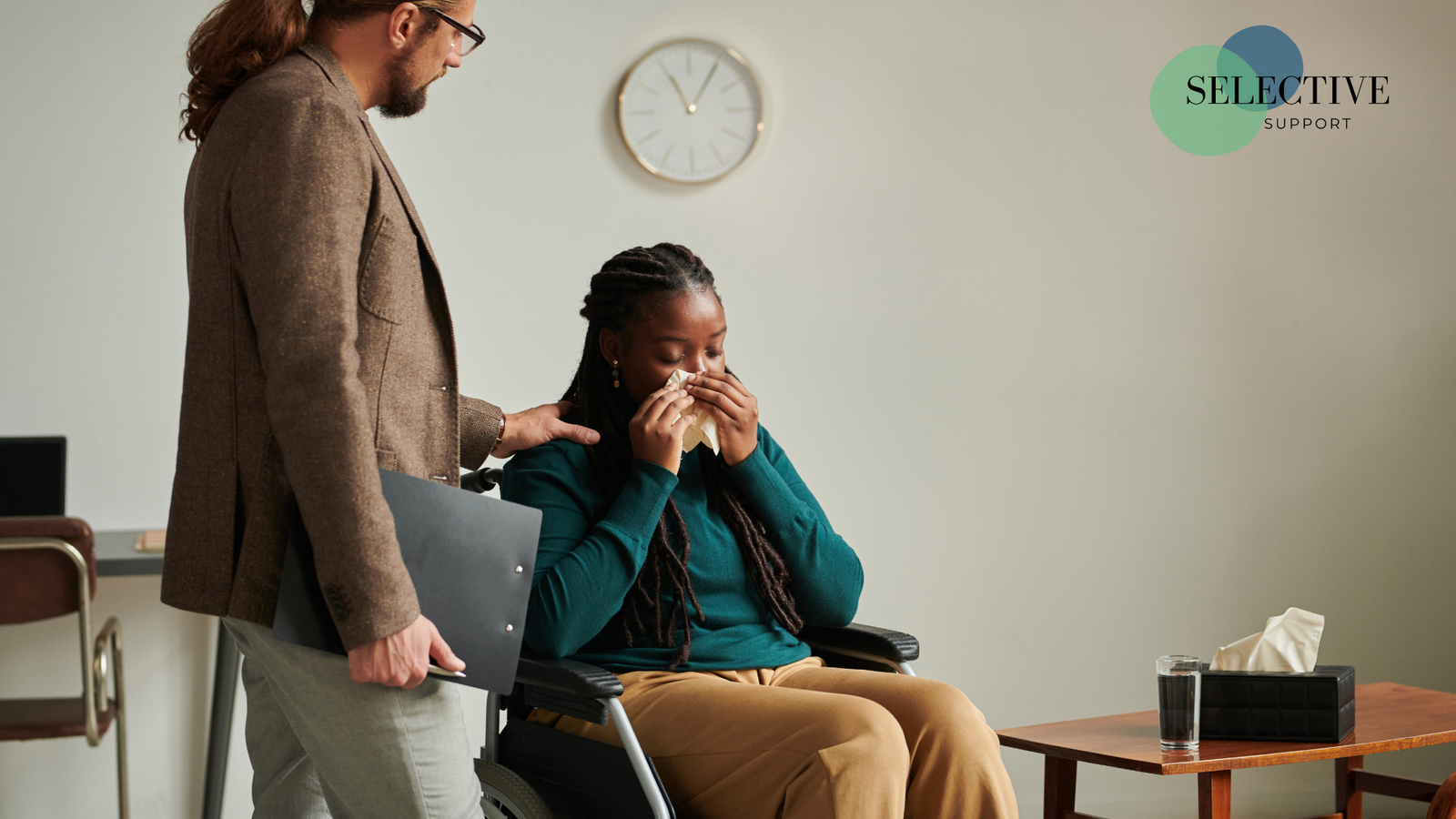Supported Independent Living: 6 Services You Can Count On
Feeling unsure about how to make the most of your NDIS plan to live more independently? Finding the right disability care and support can be overwhelming, but it’s key to building confidence and taking control of your daily life.
In this post, we’ll explore 6 essential services that can help you supported independent living, giving you clearer choices and real solutions tailored to your needs. Read on to discover how these trusted services can make a real difference in your NDIS journey.
Why Supported Independent Living Matters for You
Living independently isn’t just about where you live, it’s about feeling confident, having choice and control, and building a life that reflects your goals and values. For NDIS participants, independence might mean sticking to a daily routine and managing his own space. For carers, it could mean knowing her loved one is safe, supported, and surrounded by the right team without needing to do it all herself.
Independent living supports your mental wellbeing, builds your confidence, and reduces the everyday stress that can come from feeling overwhelmed or unsupported. In fact, research shows that people with disability who are supported to live independently experience improved health, greater participation, and better quality of life.
One important NDIS-funded service that supports this is Supported Independent Living (SIL). According to the NDIS, SIL is help with daily tasks so you can live as independently as possible, usually in a shared living arrangement. It can include support with cooking, cleaning, personal care, and building skills to help you work toward greater independence. SIL is designed for people with higher support needs who require 24/7 assistance and structured daily support.
Whether you’re exploring options for yourself or helping someone you care for, understanding services like SIL can make a huge difference. It’s about finding the right mix of support to help you thrive — in your home, your community, and your life.
Here are some important benefits of supporting independent living:
- Increased confidence: When you have the right support, you can try new activities and take charge of your goals, boosting your self-esteem.
- Better mental and physical health: Access to tailored care improves emotional wellbeing and daily functioning.
- More social connection: Being active in your community can reduce feelings of isolation and improve overall happiness.
- Less stress for you and your family: Clear, reliable support eases the burden on carers and helps participants feel secure.
A study by the Australian Institute of Health and Welfare shows that people with disabilities who receive personalised support report higher satisfaction with their independence and quality of life.
At Selective Support, we understand how important it is for you to feel confident and supported in your journey. If you want to talk about your goals and get personalised help, we’re here to listen and guide you every step of the way.
A List of Support Services for Disability That Help You Live Independently
When it comes to supporting independent living, having access to the right services can make all the difference. Whether you’re an NDIS participant who values clear guidance and routine, or a carer seeking trustworthy support, understanding what’s available can empower you to take control of your journey. Here’s a detailed look at six essential support services that help you live confidently and independently.

1. NDIS Support Coordination
NDIS Support Coordination is designed to help you make the most of your plan by simplifying what can often feel like a confusing process. A dedicated support coordinator works alongside you to:
- Clarify your funding and explain how to use it effectively.
- Connect you to trusted service providers who match your needs.
- Help you manage appointments, paperwork, and reviews
This service is especially valuable for people like you who may feel overwhelmed by the system, and want clear, responsive help navigating the NDIS.
2. Disability Care Services
Disability Care Services offer personalised assistance with daily activities, either at home or in the community. This includes support with:
- Personal care tasks such as dressing or meal preparation.
- Getting out and about for social activities, appointments, or hobbies.
- Tailored schedules that fit your unique lifestyle and preferences.
The flexibility of these services empowers you to remain active and engaged, helping you maintain independence while staying connected to your community.
3. Psychosocial Recovery Coaching
For NDIS participants with psychosocial disabilities, recovery coaching is a powerful tool to build emotional resilience and achieve personal goals. This coaching:
- Supports mental health management strategies.
- Helps you develop routines and coping skills.
- Encourages progress towards meaningful life goals.
For participants, this kind of support addresses the desire for structure and motivation, promoting wellbeing and confidence.
4. Allied Health Services under National Disability Services
Access to allied health professionals through the NDIS means you can get coordinated care from:
- Occupational therapists (OT)
- Physiotherapists
- Speech therapists
- Psychologists
- Dietitians
Having these specialists work together saves you time and ensures your care addresses all aspects of your health, improving overall quality of life.
5. Brief Therapy and Counselling
Sometimes, short-term therapy is exactly what’s needed to navigate immediate challenges. Brief counselling provides:
- Evidence-based support tailored to your current situation.
- Tools to build coping mechanisms quickly.
- A safe space for both participants and families to express concerns and get guidance.
This service is helpful for managing stress and maintaining emotional balance during difficult times.
6. Supervised Time Spent / Access
For families managing complex relationships or legal requirements, supervised time spent services offer:
- A safe, neutral environment for family visits.
- Professional supervision to ensure everyone’s wellbeing and safety.
- Support for carers balancing multiple needs and ensuring compliance.
This helps maintain family connections while prioritising safety and peace of mind for everyone involved.
Finding the right mix of these services can truly transform your NDIS experience, boosting independence and reducing stress. eIf you’re ready to explore which options suit you best, Selective Support can tailor your support plan around your goals and lifestyle.

How to Choose the Right Services for Your Journey
Choosing the right services to support your independent living journey can feel overwhelming, especially when there are so many options.
Here are some practical tips to help you evaluate and select services that truly fit your needs:
1. Consider Reliability and Experience
- Look for providers with a strong track record in disability care and positive reviews from other participants. Reliable services mean fewer disruptions and more consistent support tailored to you.
2. Check for Flexibility
- Your needs might change over time, so it’s important to choose services that can adapt. Ask how flexible scheduling is and whether they offer personalised plans that respect your lifestyle and preferences.
3. Prioritise Personalisation
- The best support services listen to you. Whether it’s a support coordinator or a care provider, make sure they take time to understand your goals, values, and challenges, not just deliver a one-size-fits-all solution.
4. Ask Key Questions
- When speaking with providers or coordinators, consider asking:
- How do you tailor services to individual needs?
- What qualifications and training does your staff have?
- How do you handle communication and updates?
- Can you provide references or testimonials?
5. Focus on Your Goals and Wellbeing
- Always keep your personal goals front and centre. Whether it’s maintaining independence, improving mental health, or managing daily tasks, your chosen services should support what matters most to you.
Choosing wisely sets the foundation for a smoother, more empowering NDIS experience.
Take Control of Your NDIS Journey with Support You Can Trust
Supporting independent living is about more than just care, it’s about building confidence, fostering independence, and improving quality of life for both NDIS participants and carers. The six services we’ve outlined provide a strong foundation to help you navigate your journey with clarity, personalised support, and trusted guidance. By choosing the right combination of services tailored to your needs, you can take control of your NDIS plan and feel more empowered every day.
Ready to take the next step? Reach out today and discover how we can help you live confidently and independently on your NDIS journey.
Independent Living and the NDIS: Your Top Questions Answered
- What is meant by independent living?
- Independent living means having the freedom and support to make your own choices, manage daily life, and participate in your community in a way that works for you. For NDIS participants, this can include support with personal care, accessing services, building life skills, and maintaining routines — all while living in a setting that suits your lifestyle and goals. It’s not about doing everything alone, but about having the right support to live life on your terms.
- What is the difference between SDA and SIL?
- SDA (Specialist Disability Accommodation) refers to purpose-built housing designed for people with extreme functional impairment or very high support needs. It focuses on the physical property — the design, accessibility, and location.
- SIL (Supported Independent Living), on the other hand, is a support service — not a type of housing. SIL provides day-to-day support with tasks like cooking, cleaning, and personal care for people who live in shared homes or on their own. You can receive SIL in an SDA home, a private rental, or even your family home, depending on your needs and funding.
- What is the difference between SIL and ILO in the NDIS?
- SIL (Supported Independent Living) is structured, rostered support provided to people with high support needs, typically in shared living settings. It often involves a team of support workers providing regular assistance with daily living tasks.
- ILO (Individualised Living Options) is a more flexible and tailored approach. It focuses on designing a unique living arrangement around the participant’s preferences — whether that’s living alone, with a host, or with chosen housemates. ILO is centred on choice, connection, and community inclusion, with support built around your lifestyle rather than set rosters.


